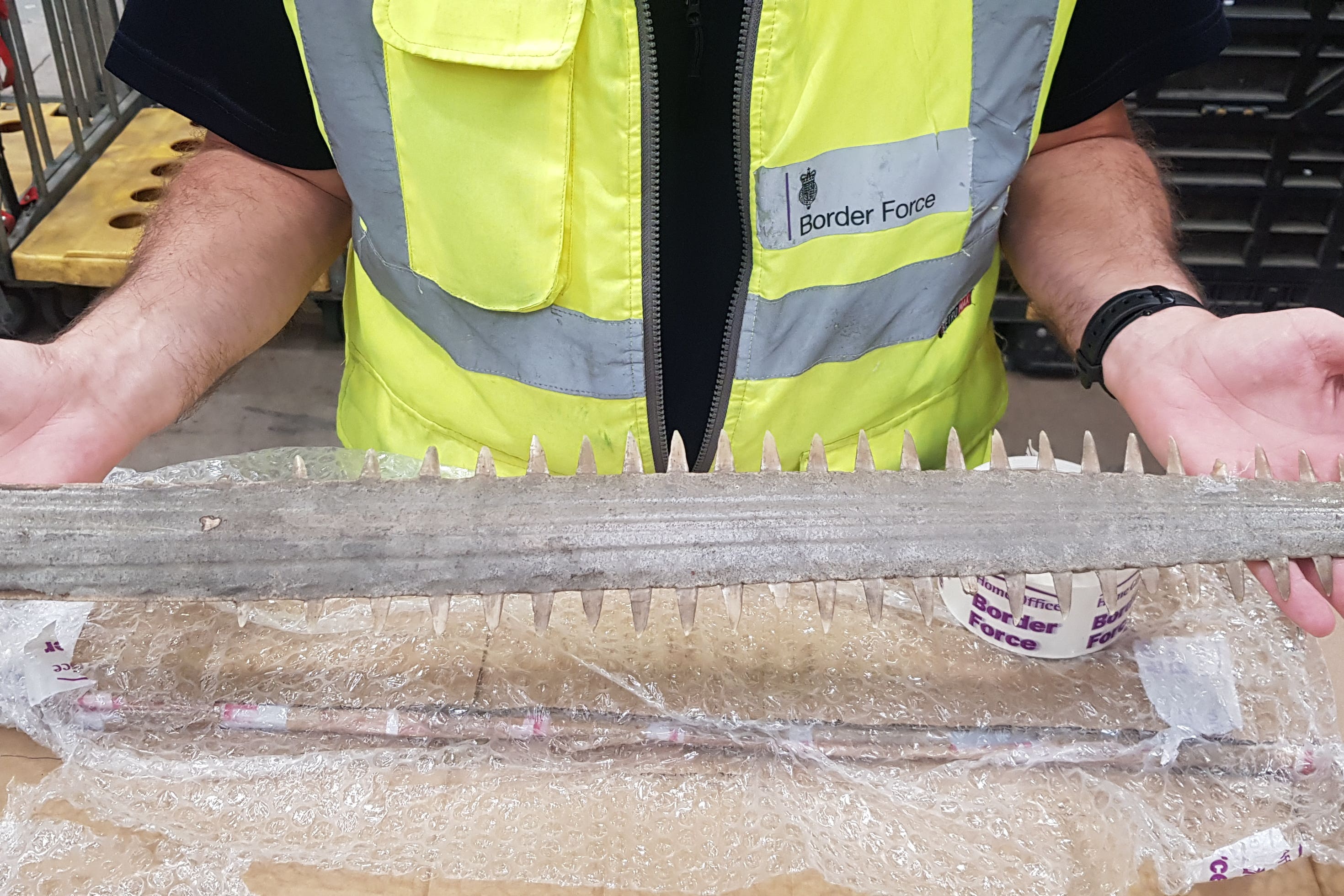Thousands of illegal wildlife products seized at UK border
Critically endangered animals and live birds were found in smugglers’ hauls in October.

Your support helps us to tell the story
From reproductive rights to climate change to Big Tech, The Independent is on the ground when the story is developing. Whether it's investigating the financials of Elon Musk's pro-Trump PAC or producing our latest documentary, 'The A Word', which shines a light on the American women fighting for reproductive rights, we know how important it is to parse out the facts from the messaging.
At such a critical moment in US history, we need reporters on the ground. Your donation allows us to keep sending journalists to speak to both sides of the story.
The Independent is trusted by Americans across the entire political spectrum. And unlike many other quality news outlets, we choose not to lock Americans out of our reporting and analysis with paywalls. We believe quality journalism should be available to everyone, paid for by those who can afford it.
Your support makes all the difference.Border Force officials seized thousands of illegal wildlife products coming into the UK during October in an international operation against organised crime, the Home Office has said.
Known as Operation Thunder, products include clothes and accessories made from snakeskin, turtle shell and ivory as well as consumer products containing cactus and orchid, crocodile blood and caviar.
UK officers made 145 seizures between October 2 and 27 and also found 53 live birds.
Co-led by Interpol and the World Customs Organisation, international efforts saw over 133 countries make 2,114 seizures and 500 arrests.
More than 300 kilograms of ivory were recovered, along with thousands of turtle eggs, 30 tonnes of plants, dozens of big cat body parts and rhino horns as well as primates, birds and marine species.
The illegal wildlife trade is driven by criminal gangs and threatens species with extinction, fuels corruption, and deprives the world’s poorest communities of sustainable livelihoods
Minister for Legal Migration and Delivery Tom Pursglove said: “The illegal wildlife trade is driven by criminal gangs and threatens species with extinction, fuels corruption, and deprives the world’s poorest communities of sustainable livelihoods.
“Border Force plays a leading global role in eradicating this damaging illegal trade and our recent successes under Operation Thunder are proof of this.”
The Government has been under pressure to strengthen action on animal welfare after its Hunting Trophies (Import Prohibition) Bill was defeated in the House of Lords last month.
If passed, it would have prohibited bringing trophies of dead animals such as lions into the UK from hunting trips in Africa and elsewhere.
Wildlife trafficking is serious, organised, transnational, and increasing
The Home Office said its current operation is intended to help protect the overall decline of nature and meet the Government’s target of protecting 30% of nature by 2030 – agreed internationally at a UN summit.
Wildlife crime is thought to be worth up to £17 billion globally a year and is the fourth-largest international crime according to Interpol, behind only arms, drugs and human trafficking, the Home Office said.
Dr Mark Jones, head of policy for Born Free, said: “Wildlife trafficking is serious, organised, transnational and increasing.
“It is also closely tied to other forms of serious crime, such as corruption, fraud and money laundering. All too often, criminal gangs view wildlife trafficking as a low-risk high-return activity.
“The work of Border Force in interrupting the trafficking of wildlife products across the UK’s borders is critical to the UK’s efforts to tackle this scourge.
“With so much of the world’s wildlife in crisis, it’s vital that our enforcement agencies are properly resourced to enable this essential and highly specialised work to continue.”